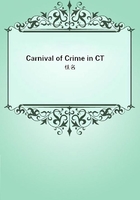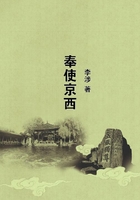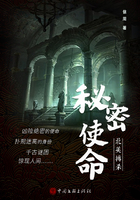Private fortunes, on the other hand, made the interests of each citizen more complex; being exposed to the attacks of cupidity and fraud, their wealth required to be defended by the public authority, according to the fundamental article of the social contract, which had combined the strength of individuals to protect each with power of all. The rights over property, the divisions of it, the means of transmitting it, became one of the most important branches of civil jurisprudence; and the application of justice to the distribution of national property, formed an essential function of the legislator.
But no inquiry concerning the nature and causes of national wealth had occupied the speculations of our ancestors. They had not ascended to the principles of political economy, in order to deduce from that source their systems of finance and civil jurisprudence, which ought, however, to be nothing more than corollaries from those principles. They had abandoned the development of public wealth to the result of individual efforts, without examining their nature; and thus property had accumulated silently, in each society, by the labour of each artisan to procure his own subsistence, and afterwards his own comforts - before the manner of acquiring and preserving it became an object of scientific speculation. The philosophers of antiquity were engaged in proving to their disciples, that riches are useless for happiness; not in pointing out to governments the laws by which the increase of those riches may be favoured or retarded.
The attention of thinking men was at length directed to national wealth by the requisitions of states, and the poverty of the people. An important change which occurred in the general politics of Europe, during the sixteenth century, almost every where overturned public liberty; oppressed the smaller states; destroyed the privileges of the towns and provinces; and conferred the right to dispose of national fortunes on a small number of sovereigns, absolutely unacquainted with the industry by which wealth is accumulated or preserved. Before the reign of Charles V, one half of Europe, lying under the feudal system, had no liberty or knowledge, and no finance. But the other half, which had already reached a high degree of prosperity, which was daily increasing its agricultural riches, its manufactories, and its trade, was governed by men who, in private life, had attended to the study of economy, when, in acquiring their own property, had learned what is suitable in that of states; and who, governing free communities to which they were responsible, guided their administrations, not according to their own ambition, but according to the interest of all. Till the fifteenth century wealth and credit were no where to be found in the republics of Italy, and of the Hanseatic league; the imperial towns of Germany; the free towns of Belgium and Spain, and perhaps also in some towns in France and England, which happened to enjoy great municipal privileges. The Magistrates of all those towns were men constantly brought up in business, and without having brought political economy to the form of a science, they had yet the feeling as well as the experience of what would serve or injure the interests of their fellow-citizens.
The dreadful wars which began with the nineteenth century, and altogether overturned the balance of Europe, transferred a nearly absolute monarchy to three or four all-powerful monarchs, who shared among them the government of the civilized world.
Charles V united, under his dominion, all the counties which had hitherto been celebrated for their industry and wealth, - Spain, nearly all Italy, Flanders, and Germany; but he united after having ruined them; and his administration, by suppressing all their privileges, prevented the recovery of former opulence. The most absolute kings can no more govern by themselves, than kings whose authority is limited by laws. The former transmit their power to ministers whom they themselves select, in place of taking such as would be nominated by the popular confidence. But they find them among a class of persons different from that in which free governments find them. In the eyes of an absolute king, the first quality of a statesman is his being in possession of a rank so high that he may have lived in noble indolence, or at least in absolute ignorance of domestic economy. The ministers of Charles V, whatever talents they show for negotiation and intrigue, were all equally ignorant of pecuniary affairs. They ruined the public finances, agriculture, trade, and every kind of industry, from one end of Europe to the other; they made the people feel the difference, which might indeed have been anticipated, between their ignorance and the practical knowledge of republican magistrates.
Charles V, his rival Francis I, and Henry VIII, who wished to hold the balance between them, had engaged in expenses beyond their incomes; the ambition nf their successors, and the obstinacy of the house of Austria, which continued to maintain a destructive system of warfare during more than a hundred years, caused those expenses, in spite of the public poverty, to go on increasing. But as the suffering became more general, the friends of humanity felt more deeply the obligation laid on them to undertake the defence of the poor. By an order of sequence opposite to the natural progress of ideas, the science of political economy sprung from that of finance. Philosophers wished to shield the people from the speculations of absolute power. They felt that, to obtain a hearing from kings, they must speak to them of royal interests, not of justice or duty. They investigated the nature and causes of national wealth, to show governments how it might be shared without being destroyed.















